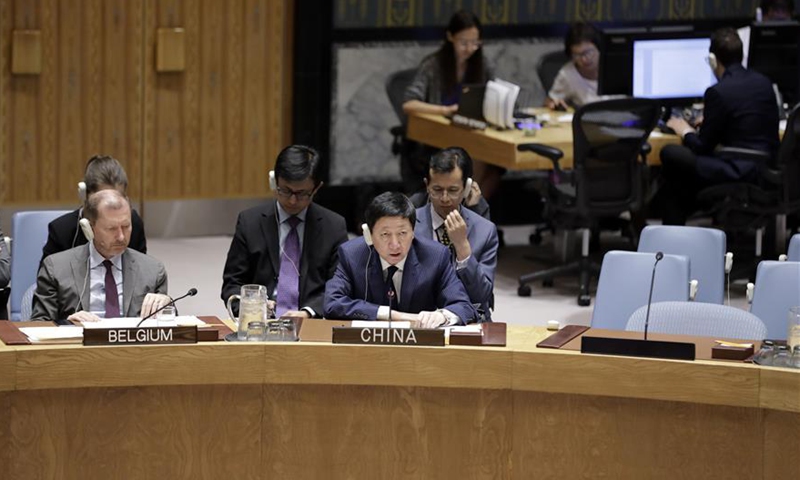Key United Nations climate science talks open amid floods, fires

Wu Haitao (R, front), China's deputy permanent representative to the United Nations, addresses the Security Council's meeting on the situation in Ukraine, at the UN headquarters in New York, July 16, 2019. Wu Haitao said Tuesday that China has always held an objective position on the issue of Ukraine, noting the United Nations Security Council should play a constructive role in this regard. (Photo:Xinhua)
Nearly 200 nations start online negotiations Monday to validate a UN science report that will anchor autumn summits charged with preventing climate catastrophe on a planetary scale.
Record-smashing heat waves, floods and drought across three continents in recent weeks, all amplified by global warming, make the Intergovernmental Panel on Climate Change (IPCC) assessment more than timely.
"It's going to be a wake-up call, there's no doubt about that," said Richard Black, founder and senior associate of the London-based Energy and Climate Intelligence Unit.
The report, he noted, comes only weeks ahead of a UN General Assembly, a G20 summit, and the 197-nation COP26 climate summit in Glasgow.
The world is a different place since the IPCC's last comprehensive assessment in 2014 of global heating, past and future.
Lingering doubts that warming was gathering pace or almost entirely human in origin, along with the falsely reassuring notion that climate impacts are tomorrow's problem, have since evaporated in the haze of deadly heat waves and fires.
Carbon pollution from burning fossil fuels, methane leaks and agriculture has driven up the thermometer 1.1 C so far, and emissions are rising sharply again after a brief, pandemic-imposed interlude, according to the International Energy Agency.
Scientists have calculated that greenhouse gas emissions must decline 50 percent by 2030, and be phased out entirely by 2050 to stay within the range of 1.5 C.
A third sea change over the last seven years is in the science itself.
"Today we have longer observations with a much clearer signal of climate change," climatologist Robert Vautard, also an IPCC lead author and director of France's Pierre-Simon Laplace Institute, told AFP.
But after-the-fact analysis is not the same as foresight, and the IPCC, set up in 1988 to inform UN climate negotiations, has been criticized by some as a pattern that Harvard science historian Naomi Oreskes has called "erring on the side of least drama."
AFP



